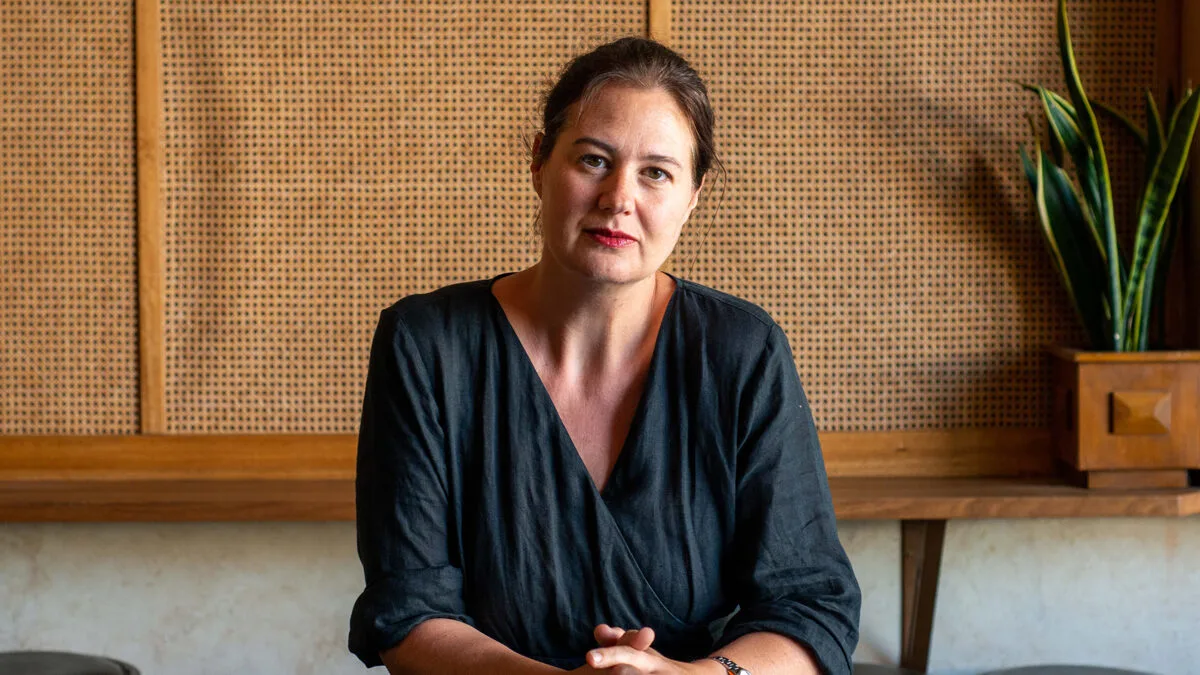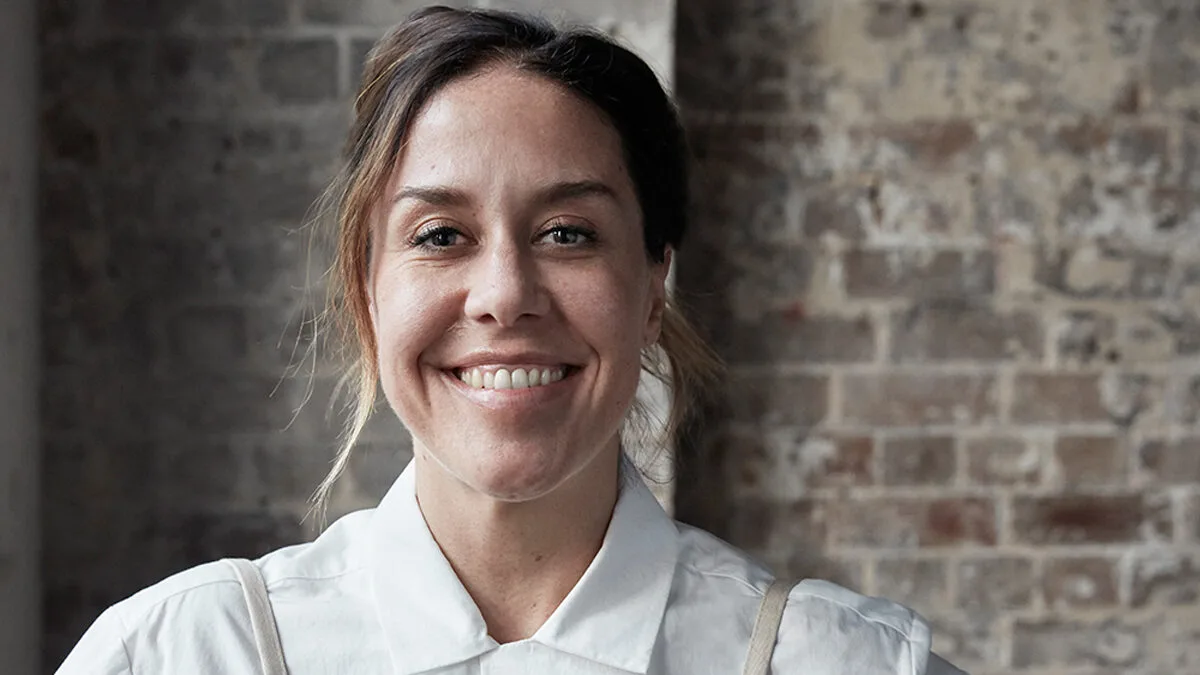A note from the editor: As more allegations of abhorrent behaviour in Australia’s hospitality industry come to light, we felt it was timely to resurface this feature from last year, in which women from across the industry share their experiences, highlight the role diners play in fuelling sexism, and discuss what needs to change.
While it is disappointing this conversation has not progressed in the last 18 months, it is one we need to keep having. Systemic and cultural change is always slow. But it won’t happen at all unless we keep talking about it.
The recent reporting by Good Food and Nine Newspapers, as well as the ABC, has shone a bright light on some deeply concerning allegations. But each and every one of us working in hospitality, or adjacent to it, knows this culture extends beyond those named so far. The more we continue this conversation and draw wider public attention to it, the further that light will shine and the greater the change will be.
Shine a light. Speak up. We are listening.
“In the kitchen, there were constant references to rape, and it was common for guys to push cucumbers between your legs as a joke while you worked.” – Almay Jordaan, chef-owner of Melbourne’s Neighbourhood Wine, Old Palm Liquor, and Bahama Gold.
“A lot of the comments I’d receive were both racist and sexist. They would fetishise me while standing a metre away from me.” – Stefanie Wee, founder of Last Call.
“There are restaurants in Melbourne with high-profile male head chefs whose behaviour has been so sickening people ended up in therapy because of it.” – Jacqui Challinor, executive chef at Nomad Group.
“There was a lot of locker room talk, and then there was the classic arse grabbing, sexualised jokes, people saying things about me that were extremely inappropriate, especially considering I was 15 years old.” – Shannon Martinez, chef-owner of Smith & Daughters and Smith & Deli.
This is just a snapshot of the harassment, abuse and misogyny that exists within Australia’s hospitality industry. A culture that has been allowed to take root, squeezing women out of the industry, preventing them from reaching positions of power.
The boys’ club of Australian kitchens is nothing new. Globally, kitchen machismo can be traced back to the 1860s when former army chef – and godfather of French cooking – Auguste Escoffier established the kitchen brigade system; a system of hierarchy where every cook is given a clear, singular motive. Yes chef!
This is a working environment where bravado thrives. Or put more bluntly by the late Anthony Bourdain, gives rise to the “institutionalised Meathead Culture” of the restaurant business.
At best, the system is set up to erode boundaries; it tells workers to toughen up, not to complain, and if they can’t handle the heat, they know where to go.
“It’s about getting hurt in a kitchen and not asking the chef for a bandage; often soldiering through because you don’t want to look weak. How many burns can you get? Can you take it?” explains Almay Jordaan, chef-owner of Melbourne’s Neighbourhood Wine, Old Palm Liquor and Bahama Gold. “Essentially, you’re not ‘one of the guys’, that’s where it all comes from.”
At worst, it’s a system where rape culture goes unchecked.

Unsafe workplaces
Jacqui Challinor was sexually assaulted while she was an apprentice chef. She was 22 and in service at the pass when a senior chef “grabbed my vagina, looked at me, and said, ‘Yeah, I grabbed your pussy. What are you going to do about it?'”
The next day, Challinor asked her head chef to move her to another kitchen, though she didn’t want to mention the incident. After he queried her further, she told him. “He was obviously outraged and said I needed to report this. I literally begged him not to as I didn’t want to cause a scene.” The matter was escalated; she sat in a boardroom full of senior males, and the case was later dismissed due to the abuser denying her claims.
“I just think, ‘how did that happen? How was there no support? How was there no follow up from my HR department to check in and see how I was?’ The more I think about it, the angrier I get.”
Challinor’s experiences aren’t isolated. In 2022, a national survey conducted by the Australian Human Rights Commission found that 34 per cent of hospitality staff reported being sexually harassed. Female workers were more likely to be harassed, and three-quarters of harassers were men.
“In some of the bigger places where I worked, sometimes a ‘pretty’ girl would do stocktake or go to the dry stores in a different part of the building alone,” recalls Jordaan. “The guys would ask, ‘Oh, who’s going to follow her to have a quick fuck in the dry store?”

The male gaze: How diners feed into the problem
Sexism and sexual harassment aren’t isolated to the back-of-house, where harassment is concealed behind closed doors. Sexist microaggressions are rife throughout the front-of-house – and staff aren’t the only perpetrators.
Kelsey Tukiri is venue manager at Melbourne’s Poodle Bar and Bistro and Rocco’s Bologna Discoteca. Throughout her career at venues across the state, she found herself swapping out young female staff from their sections and standing in for them due to unruly male patrons. “A lot of the time, it’s older guests speaking down to them and treating them like they’re incompetent. Which is frustrating,” she says. “I have waitresses who are hospitality professionals and some who are studying architectural degrees. You think they can’t do something as simple as put an order through for your steak?”
Moira Tirtha was the sommelier at Mauritian wine bar Manzé. “Sometimes, I’d be the only one on the floor with two wine glasses and a spittoon in front of me waiting for a rep to show us their wine portfolio,” they say. “The rep would walk straight past me, go the kitchen and ask for the somm. How could it not be me?”
Jaime Brown is another front-of-house professional who has worked at some of Melbourne’s most respected restaurants and been subjected to the same behaviour. “I once had this table of two high-flying corporate men, who at no point acknowledged my presence or spoke directly to me. The entire evening, they kept taking bets as to who would take me home.” After asking their manager to swap sections, he effectively told them to suck it up, saying: ‘They’ve already racked up a bill that’s close to $5000, so maybe just cop it until they go.'”
Wee is a Singaporean with Chinese heritage. She remarks upon the experience of Women of Colour and the fetishisation she’s been subjected to. “One man came up to me while I was making coffee and said, ‘I like women of your type because they’re small.'”
Racist or discriminatory comments directed at migrants and/or Women of Colour about their bodies can be a particularly jarring experience. Especially when they have complicated relationships with their bodies due to culture, religion, stereotypes and negative bias.

Stefanie Wee, founder of Last Call
Transformation: How women are changing kitchen culture
Jordaan worked for 15 years before she allowed herself to go on to a senior sous chef role, followed by a head chef role. “I came from the era where girls got stuck on the salad section because they’re good at organising things. I only got thrown on the grill [section] when I worked for a female chef who told me I was capable and could do it,” says Jordaan.
As Martinez sees it, the answer may lie in female leadership. “Female-led kitchens tend to approach things quite differently and can lack aggression. Women are more empathetic in general. We can still get work done and hustle, but we encourage it in a different way.
“I don’t discipline or pull people up in front of others; it has such a negative impact on the rest of the team as well. I really care about what’s going on in the lives of my staff as well and try to acknowledge that if someone’s not performing, there’s probably a good reason for it. We try to make sure that our staff are comfortable talking to us about things.”
“Feminine” styles of leadership have been closely linked with transformational leadership, whilst “masculine” styles of leadership are transactional, as reported in the Harvard Business Review as far back as 1990. It’s a proactive style that empowers those around them to dream big and go beyond their role, fosters open communication, and can lead to mutual trust or respect. Transactional leadership is a more reactive style that focuses on running a stricter, tighter ship with rewards and punishments as motivation.
“I have chefs telling me it’s the first time they’ve worked somewhere where emotions are addressed so openly, and we have a system where we check in with every single staff member on rotation once a month. It has a very good effect on staff retention. Because people want to work in a nice place,” says Jordaan.
Zoë Rubino is co-owner of Poodle Bar and Bistro and Rocco’s Bologna Discoteca. “I think it’s problematic how inflexible the restaurant industry is in allowing women to have families and return to work,” she says. “It treats young professional women who are trying to develop their skills and build long term careers as if they have a shelf life. If women are at an age where they could go on maternity leave, they are overlooked for promotion or development because it’s assumed that they won’t return to work.” Meanwhile, prolonged paternity leave is nearly unheard of in the hospitality industry.
Rubino, like Martinez and Jordaan, started her own venues so that she could call the shots.

The march forward: What needs to change?
“It would be really valuable if men spoke about it more…Whenever a man takes a stand [in these situations] it has a different weight to it because they’re standing up against their own,” says Martinez.
Rubino believes in creating opportunities for women to work in hospitality while facilitating their families. “I don’t expect restaurant groups to build a crèche for working mothers, but the industry needs to be more flexible. Hospitality is lagging behind corporate sectors in terms of job sharing or working part-time in leadership roles.”
She believes it also means taking a stand against tokenism and tackling the rockstar-esque poster boy image chefs are associated with. “It’s patronising that the food that women are celebrated for cooking is really nourishing and wholesome. Whereas the food that men are celebrated for cooking is really avant-garde.”

List of resources which can help people being abused in the industry:


